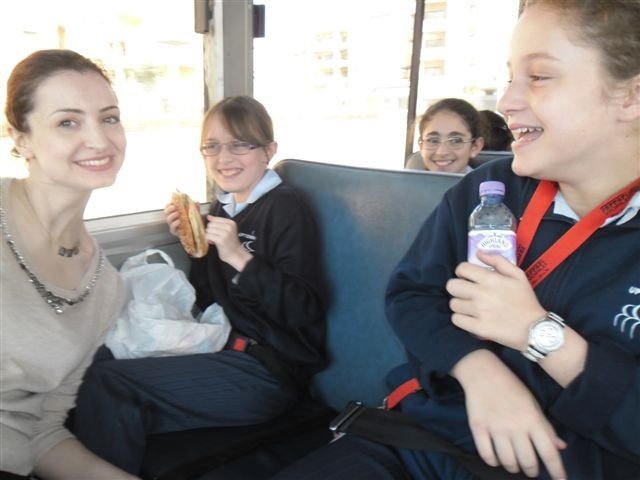By means of a simple introduction, I am an English teacher, aged 31 who moved this year from Manchester, UK to Dubai, UAE, having never set foot in the Middle East before. I must also mention that, although this piece reflects some negative aspects of teaching abroad, on the whole it is an amazing experience, which leaves me with no regrets. You can only fully get to know a culture after living there for one or two years – if you’ve only been a tourist for one or two weeks that’s not enough!
 It must be said that everything I will say depends fully on (a) which country you mean by ‘abroad’ and (b) how you are, i.e. the old cliché of crisis and opportunity being two sides of the same coin. I would also add that I am a minor veteran of overseas life – my first ever teaching job being on no other than the Isle of Man, and at some point having also spent two years teaching at an International School in Helsinki, Finland.
It must be said that everything I will say depends fully on (a) which country you mean by ‘abroad’ and (b) how you are, i.e. the old cliché of crisis and opportunity being two sides of the same coin. I would also add that I am a minor veteran of overseas life – my first ever teaching job being on no other than the Isle of Man, and at some point having also spent two years teaching at an International School in Helsinki, Finland.
The first challenge I will describe is the poisoned chalice of bureaucracy. Again this depends on where you go, but be prepared for draconian measures, such as blood tests, chest X-rays, finger-printing, palm prints, iris scans, in short – the works. This comes after you have provided a signed letter from each of your previous employers confirming the dates that you worked at their school. Sounds simple? We’re talking dozens of emails! The list continues… a transcript of your PGCE certificate from the University, and do make sure your qualifications have been fully ‘attested’ (this involves a solicitor, the foreign office, mingled with a dollop of cash, waiting and stress). But I’m going to an EU country you cry! Well, still be prepared for puzzling visits to the Magistrates, the local police et al. On the bright side, your school will be experienced in this, and will help you along the way.

Next, I would say the second biggest challenge is simply adapting. There will be a myriad of things which are different to your home country, laws, social mores etc. Logistically, being in a new environment gives challenges to your daily life at the beginning. You need to visit the doctor, but firstly there may be several things to think about: Where is the surgery? How do you make an appointment? Who do you see? (There may be few GPs and many various specialists) Have I got my health insurance yet? Is this covered? How much will medicine cost me? Etc… You may even find that your routine medication from back home is not authorised in the new country (yes it happened to me!). There may also be impassible boundaries placed in your way. My first wage was paid into my new bank account, but I couldn’t withdraw money as the bank would not give my bank card over without my producing my passport / an ID card. You guessed it – the passport was with the embassy, and had been for several weeks, whilst waiting for said ID to materialise. “It’s no problem,” said the bank. “Just come into the branch and we’ll hand you cash.”
“You’ll hand me cash, without me having ID?”
“No ma’am, you will need your ID.”
“…!”
Again, the school will help you. And there will be new colleagues sharing in your commiseration whilst you bond over such small-scale catastrophes.
Thirdly comes the challenge of isolation. Away from friends and family, you will have to build new relationships and friendships. Personally, I think this is a great opportunity, but again there may be some practical limitations. At first you may not have the internet. You may not have a TV, sofa, the majority of your personal items – and you may not have a car. In some countries, getting set up with these things may take a while. For a start, you are not likely to be flush with cash straight away, particularly as you might be waiting for a refund of your flight ticket etc, but also you may need residency to even be able to get the internet and a driving license. Living in a bare shell without transport, possessions, and no friends – that’s isolating! Bear in mind also if you go somewhere where you can’t understand the language, it can get to you after a while. OK, you can survive, but that may not be enough for you.

My goodness, I haven’t even mentioned the teaching! There will be a new curriculum to get to grips with, and you will need to look beyond the Sceptred Isle to thinking of literature, history, geography etc in a more internationally-minded less ethnocentric way – as far as this is possible. Personally, yes, a new way of teaching is a challenge, but it is also a breath of fresh air and after all ‘a change is as good as a rest.’ You may find you and your teaching to be reinvigorated as a result.
To close, you will notice that these three main challenges will face you most at the beginning of your sojourn. The beginning may also be the time when you have the most energy, enthusiasm and excitement. So, my friends, after the honeymoon period the rot can set in, be prepared for a rollercoaster ride and the world’s your oyster. And on the plus side, you can look forward to the holiday of your dreams, you guessed it, coming back to the UK after several months and telling your tall tales to all and sundry really is the icing on the cake. Enjoy.




